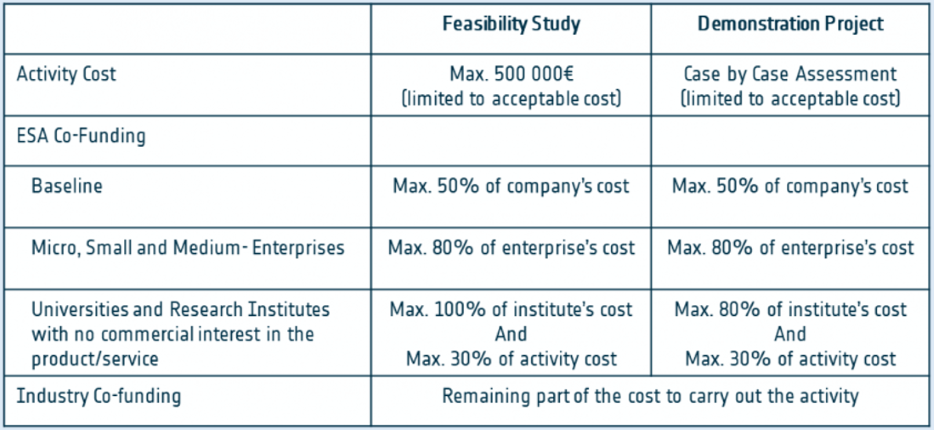

Key Features
This call comes under the umbrella of the “Commercial Applications of Space-Enabled Robotics” thematic call for proposals.
Programme: The European Space Agency
Award: Share of up to EUR 500,000
Opens: 23rd May 2024
Closes: 23rd Jul 2024
This call comes under the umbrella of the “Commercial Applications of Space-Enabled Robotics” thematic call for proposals.
This call invites proposals for Feasibility Studies and Demonstration Projects for services that combine the use of satellite technologies and robotics for downstream services for energy and utilities.
‘Robotics’ is here defined to include physical robots, autonomous drones, machines and vehicles, and precursory solutions or those that enable these (e.g. perception and navigation systems for autonomous systems, connectivity solutions to enable tele-operated robotics…).
Within the energy and utilities sector, applications of space-enabled robotics are foreseen in relation to supporting energy and utilities infrastructure deployment, operations, inspection, maintenance, and/or decommissioning. Infrastructure in question could be waste and water utility infrastructure, electricity grids, oil and gas platforms, on- or offshore wind farms, telecommunications networks, pipelines, nuclear power plants, solar farms or otherwise.
Satellite Positioning can provide coarse to high accuracy positioning information to autonomous vehicles, vessels and drones operating in outdoor spaces. This can be used for navigation, geo- and timestamping of collected data, time-synchronisation of networked vehicles, and/or determination of speed and heading. Satellite positioning could be combined with inertial and alternative positioning techniques to support effective navigation. Augmentation of GNSS can offer higher positioning accuracies via solutions such as Galileo HAS (High Accuracy Service), RTK (Real-Time Kinematic), or otherwise, with the selection dependent on the service requirements.
Satellite Communications provide data, video and voice communications and may add value to applications implemented in the following service provision scenarios:
Satellite Earth Observation
It is expected that satellite Earth observation could support autonomous vehicle solutions at the service level, i.e. providing complementary or enabling datasets such as mapping data to support the navigation of the vehicle, vessel or drone, in certain environments. Satellite earth observation data could support with optical, radar, meteorology data, or combinations thereof.
Spaceflight Technology
Spaceflight Technology Spin-Outs are applications of robotics developed for use in space (and other astronomical objects) that also have commercial applications on Earth. This could relate to tele-robotic solutions and algorithms (perception, planning, control…) developed for the autonomy of space robotics that have applications on Earth, or otherwise. Spaceflight Spin-Outs are also considered eligible.
The European Space Agency look for promising business ideas addressing topics of relevance or related areas that propose:
The European Space Agency offer funding and support to companies, both for business case assessment and for the development of new, space-based services. Our offer includes:
*(50-80% depending on SME Status and Member State Approval)
The initiative is open to the submission of proposals for Feasibility Studies and Demonstration Projects:
This opportunity is open to companies that intend to develop space-enabled services and products related, but not restricted, to the topics of relevance outlined above. To be eligible for funding, your team must be based in one of the following countries: Austria, Belgium, Czech Republic, Denmark, Estonia, Finland, France, Germany, Hungary, Ireland, Italy, Lithuania, Luxembourg, the Netherlands, Norway, Poland, Portugal, Romania, Slovenia, Sweden, Switzerland and United Kingdom. Teams can involve non-European entities, but their contribution to the activity cannot be funded by ESA. Authorisation of Funding letters from the corresponding National Delegations are required as part of the application.

For further information, see activity description here
Book an appointment to speak to one of our advisors to discuss your eligibility to apply for this Grant Funding opportunity.